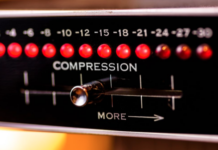On the occasions I have given lessons to young guitarists, I’ve repeated the lesson that in their favorite guitar player’s life there was a moment when they couldn’t play that chord, either. And like the baby with the creamed pea-covered face, they’ll keep trying until they get that spoon in their mouth.
Repetition breeds consistency. And consistency is the key to sustained success. Like a pro golf swing or the 450th lap of the Indy 500, the last one was as familiar as the first one. The physical benefits of repetition for musicians go hand in hand with muscle memory, from the muscles of the hand, wrist, forearm, shoulder, neck and back, to the intrinsic muscles of the larynx.
But our brains benefit the most from repetition. Consider the rather mundane task of driving to work, every action from the moment you open the car door until you park at your destination. Think of all the information, images, sounds, thoughts and stimuli you absorb every second, all while operating a heavy piece of machinery at high speeds down the road. When first starting to drive, the task is overwhelming and practice in an empty parking lot is recommended. But after plenty of repetition, we are talking on the phone, turning up the radio and thinking about some situation whose scope and participants are far from the interior of our car. Now add to that scenario the variable that on the last few trips you thought you heard a noise that a smooth-running auto never makes. So a little of your brain will be dedicated to patrolling the audio waves for that sound. Now your phone rings and it is your significant other, whom you love very much, needing to have a conversation requiring your emotional participation. Now as you look to your right, you see a nice lady trying to get your attention to ask if this is the way to the beach. A policeman is now behind you and though you have no reason for concern, you’re still aware of his presence. All this while you’re still driving, watching the lights, speed, pedestrians and bicyclists. “Was that the weird engine sound? I wish this cop would just pass me, yes, my love, I understand.”
Through repetition you are not only able to do all this, but have a good attitude when you get to work, most of the time. The number of repetitions it takes to master a skill is difficult to determine.
Though most musicians aren’t getting calls during a song, they are asked to express the music emotionally. One bit of your mind is always on the lookout for any changes, while also thinking of changes that could be made in those milliseconds between when the brain knows what to play next and the body responds.
So when you tip a musician or express your appreciation, you’re not just grateful for the minutes of music you heard, but for the hours and days of playing, feeling, learning and teaching their mind and body to become one with the task and make it as much a part of them as breathing. Over and over again.























